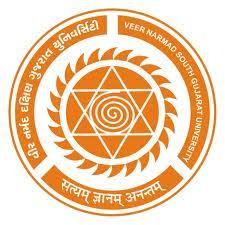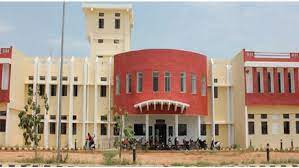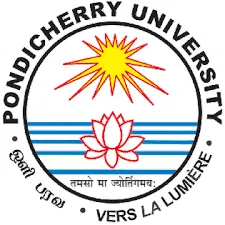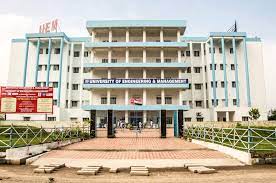A Ph.D. in Naturopathy is the highest degree available to naturopathic physicians. Graduates are well-prepared to climb the career ladder as independent practitioners. They may be interested in pursuing the theory-oriented field of academics or research. A Ph.D. in Naturopathy can open many doors in the field of health and the health sciences. To find out more, contact the admissions offices of your chosen school. These professionals are able to explain all the details of the program and help you make a more informed decision.
A Ph.D. degree is an advanced degree that requires a large amount of study. The average Ph.D. in Naturopathy program takes four years to complete, and students can apply for federal and state aid to help cover the costs. If you're already practicing in the field, you can qualify for a Stafford loan and receive financial aid to help you afford your studies. While some programs are shorter, others can be longer and more expensive. The cost is usually higher for homeopathic and hypnotherapy programs, but these degrees are available to practicing physicians.
A Ph.D. in Naturopathy is a doctorate in natural medicine that is awarded after many years of study and research. Graduates earn their degree after completing the required courses and gaining experience in the field. These programs can be quite expensive but are also worth it if you're serious about a career in naturopathy. The program also allows you to expand your career opportunities and learn about new treatment options.
Ph.D. in Naturopathy Eligibility
Candidates who want to take admission in Ph.D. must have a post-graduate degree in Naturopathy and its relevant discipline with at least 55% marks from a recognized university and must have passed the national level entrance examination or university level entrance examination. National level entrance exams like UGC NET / UGC CSIR NET / GATE / SLET or University entrance exams consist of written tests and personal interviews.
The Benefits of a Ph.D. in Naturopathy
Doctorates in naturopathy are a good option for those who want to specialize in a particular field. While MDs study the same basic sciences, NDs also have extensive training in the diverse field of alternative medicine. A doctoral degree in naturopathy also includes practical clinical training, which provides students with the opportunity to interact with patients and learn about the work environment. Once you graduate, you will need to obtain a license to practice in the area of your specialty. This is usually done through a state or national agency, but it's not always necessary. The programs vary in cost from one school to another, so it's important to inquire about costs before enrolling.
A Ph.D. in naturopathy prepares graduates to practice naturopathy independently. A doctoral degree in naturopathy also allows students to take courses in the theory-oriented world of research and academics. The benefits of a Ph.D. in naturopathy can be numerous and are worth considering if you're considering a career in the field. You can contact individual schools to inquire about their Ph.D. programs.
A Ph.D. in naturopathy helps you reach the top of the career ladder in the field of naturopathy. This doctoral degree prepares individuals for independent practice, although some graduates are drawn to the theory-oriented world of research and academia. With a Ph.D. in naturopathy, you'll be well-prepared to enter a wide range of advanced positions in health and the health sciences.
The Career and Job Opportunities of Ph.D. in Naturopathy
A naturopathic medical degree can lead to a number of rewarding career options. While many graduates choose to specialize in one area of natural medicine, a growing number are combining several paths into one. This can be a great way to achieve a work-life balance while continuing to advance your career. Here are some potential career paths. This article will provide you with a brief overview of each.
Doctoral-level training is essential for naturopathic doctors. While NDs learn the same basic science subjects as MDs, they are trained in a variety of alternative medical techniques. Clinical training is another important part of doctoral education, as it allows students to interact with patients and learn about the working environment. There are various licensure requirements based on your area of specialization. To practice naturopathic medicine in your state, you must become licensed. Certification from various industry organizations is also useful, although it does not mean that you are licensed to practice.
As an ND, you need to hold a Ph.D. in Naturopathy to practice naturopathic medicine. The doctorate is similar to that of a medical doctor but focuses on alternative medicine, which has more specialized practices. The ND degree has limited state licensure, varying from one state to another. You must be registered to practice as a naturopathic physician in the state where you plan to work. In addition, naturopathic doctors cannot prescribe drugs. However, they can prescribe supplements and other treatments to help their patients.
The Future Scope of a Ph.D. in Naturopathy
The scope of a Ph.D. in Naturopathy is huge, especially in the growing field of alternative medicine. There are many job opportunities and lucrative salaries in this field. Currently, the natural health industry is growing rapidly, and naturopathy has become increasingly popular around the world. Moreover, people seeking alternatives to allopathic medicines are also turning to naturopathic medicine for relief. As a result, the future scope of employment in naturopathy is wide.
As a doctor of naturopathy, you will be a part of a rapidly-growing field. A naturopathic doctor deals with different clientele, ranging from old people with chronic ailments to pregnant women with children to people suffering from high levels of stress. Regardless of the clientele, your goal will be to improve the patient's health. The career scope of a naturopathic physician is unlimited.
If you're interested in pursuing a career in naturopathy, the future is bright. It's a growing field with several career options, including a position as a professor. As a doctor of naturopathy, you'll be able to work with a variety of clients, ranging from elderly individuals with chronic health conditions to children and pregnant women who experience high levels of stress.
Ph.D. Research Program duration
The Ph.D. in Naturopathy course is a minimum of 3 years and a maximum of 5 min duration. This depends on the university offering the course.
Fees for research program for Naturopathy
The average fee for Ph.D. in Naturopathy degree is between INR 50000 and INR 500000.
 5 Years
5 Years
 PhD
PhD
 Research
Research

































 back
back